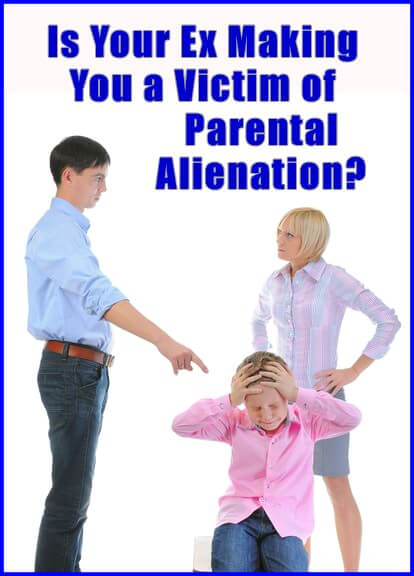
- Insinuating they have a choice as to whether or not they spend time with you
- Making comments suggesting they blame you for the divorce and/or other family problems
- Becoming angry with you but yet unable to explain why or provide any reason
- Refusing to spend time with you due to the fact that the custodial parent offered them “better” plans during that same time period
- Indicating that the custodial parent feels “sad” or “hurt” after they enjoy time with you
- The custodial parent is lying or otherwise bad-mouthing you to your child
- The custodial parent limits your contact with your child
The above is, of course, not an all-inclusive list. You should speak to your Nassau County or Suffolk County Divorce Attorney for more specific details and circumstances which may be considered parental alienation. To find out more specific details and circumstances which may be considered parental alienation, speak to your Nassau County or Suffolk County Divorce Attorney; Long Island residents can contact Robert E. Hornberger, Esq. for more information. Why is the Custodial Parent Attempting to Alienate Me from Our Child? There are a variety of reasons why the custodial parent would attempt to, for lack of better words, sabotage your relationship with your child. Because parental alienation is often referred to as a “syndrome,” I will refer to the reasons set forth by various psychologists:
- The custodial parent may simply be angry at you, and be unable to separate his or her personal feelings toward you with his or her personal feelings toward you as a parent
- If the custodial parent is the child of divorce, he or she may still have anger toward you as a result of unresolved anger toward his or her own parents
- At times, parents’ entire lives revolve around their children. If the custodial parent operates in this fashion, he or she may be threatened or even jealous of your relationship with the child. In that event, the custodial parent will offer the child “better” activities or gifts in the hopes the child will pick them over you.
What Recourse Do I Have as a Non-Custodial Parent in the State of New York? The Second Department recently ruled on the issue of parental alienation as it pertains to New York’s “best interests of the child” standard in the March 25, 2015 case of Matter of Halioris, 2015 NY Slip OP 02479. As your Long Island Divorce Attorney will likely inform you, in order to modify a custody arrangement the movant must be able to show that there was a substantial change in circumstances and that the change of custody is in the best interests of the child. In Matter of Halioris, the mother was the custodial parent and the Father was the non-custodial parent. Based upon the mother’s parental alienation of the child to the father, the Court found that a “transfer of sole custody to the father would be in the children’s best interests.” Most importantly however was the Court’s notation that “[p]arental alienation of a child from the other parent is ‘an act so inconsistent with the best interest of the children as to, per se, raise a strong probability that the [offending parent] is unfit to act as custodial parent.” Accordingly, because the best interests of the child are among the most important considerations when making a custody determination, the Court granted the father’s petition for a modification of custody.
See this page to learn everything you need to know about Child Custody and Visitation on Long Island.
Are You a Victim of Parental Alienation? Receive a Free Consultation from a Divorce Attorney, Long Island’s Robert E. Hornberger, Esq.
Long Island residents who need more information about issues of Parental Alienation should consult a local divorce attorney. Long Island’s Robert E. Hornberger, Esq., PC’s compassionate and experienced divorce attorneys can help. Looking for legal services from an experienced and knowledgeable divorce attorney? Long Island residents can call us at 631-923-1910 for a complimentary, confidential consultation or fill out the short form on this page and we’ll get right back to you.